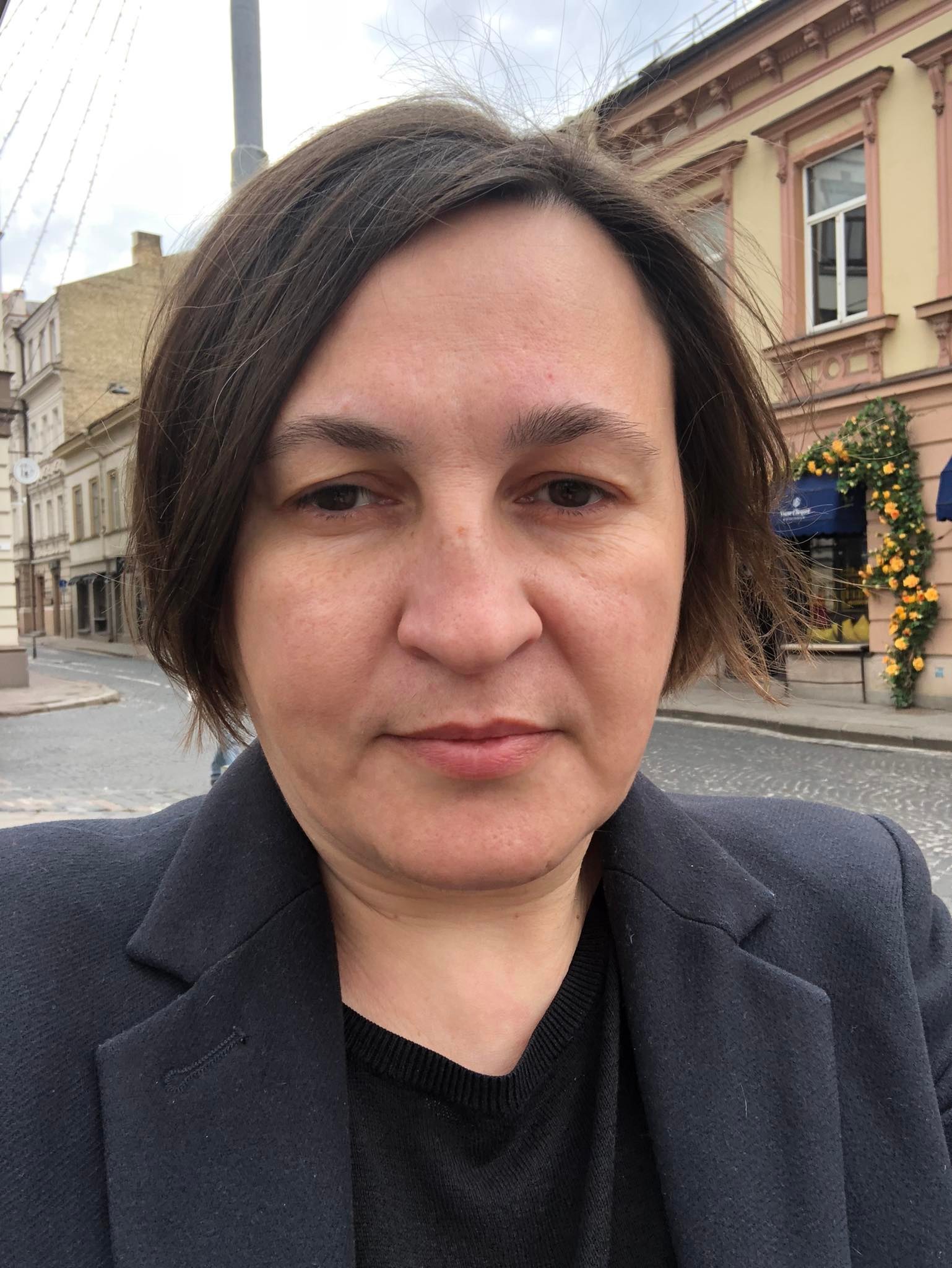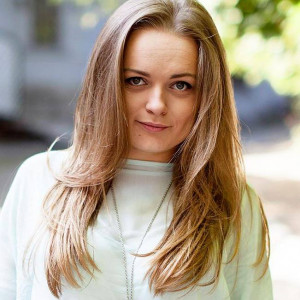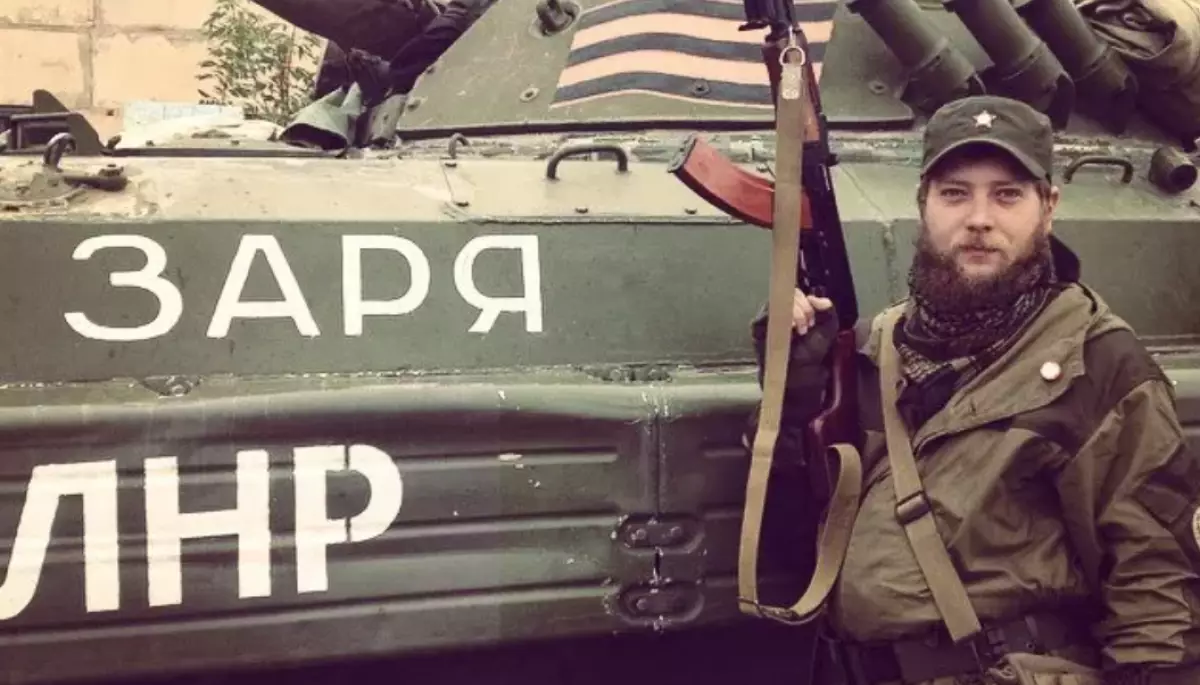

The globally disseminated narrative, orchestrated by a vast propaganda campaign, spins the death of RIA Novosti’s Rostislav Zhuravlev as a “deliberate killing of a journalist with cluster munitions,” painting a Russia-favoring image.
Zhuravlev, an RIA Novosti staffer, lost his life on July 22 in the Zaporizhzhia region, an event that Russian propagandists are exploiting to insinuate his death was a targeted hit, urging a response from international organizations.
Russian media and government officials have been relentlessly voicing their outrage, branding it as “Ukraine murdering a journalist” and pressuring the global community to “condemn the killing”. Following the news of Zhuravlev’s death on July 22, RIA Novosti alone released a plethora of news stories, all suggesting that the “journalist” died from “cluster munition” shelling. This narrative has been the focus of every Russian propaganda outlet for the past three days, despite the actual details surrounding Zhuravlev’s death remaining unknown to the public.
The accounts of Zhuravlev’s death and the injury of his colleagues solely hinge on the reports from the Russian Ministry of Defense, which has yet to substantiate its claims with solid evidence.
Since the news broke on July 22, Russian officials have been engaged in a relentless campaign of “demanding” and “declaring”, urging UNESCO to “condemn the murder” of Zhuravlev, who openly participated in hostilities in Ukraine in 2014, but is ubiquitously referred to as a journalist. In this period, Zhuravlev was posthumously honored with a medal by Russia, which initiated criminal proceedings for “journalist murder,” called for “retaliation against Kyiv,” and berated the U.S. for its “inhumanity” in supplying Ukraine with cluster munitions. Russia is leveraging Zhuravlev’s death to shift attention away from its own transgressions and persistently peddle the idea that “the U.S. authorizes the Nazi regime to kill civilians with cluster munitions.”
Interestingly, Russia, proven to be deploying such munitions in Ukraine, and three weeks post the U.S. declaring its provision of such projectiles to Ukraine, has been incessantly promoting the idea that these weapons are “inhumane” and that the U.S. is guilty of “a crime against morality”. This is despite none of the involved parties — the U.S., Ukraine, or Russia itself — being signatories to the convention prohibiting such munitions. Only in the past three days, Russia has deployed cluster munitions on Ukraine at least twice, resulting in injuries to a Deutsche Welle journalist, among others. Deutsche Welle asserts it possesses proof of their journalist being harmed by this kind of weapon, a level of evidence absent in Zhuravlev’s case.
Indeed, even within Russia, it’s acknowledged that the circumstances surrounding Zhuravlev’s death warrant closer examination. On July 22, the secretary of the Presidential Council for Civil Society and Human Rights expressed that the incident could have been foreseen given the intense artillery exchange in the Zaporizhzhia sector between July 22-23. Nevertheless, this admission has largely been ignored by Russian propaganda.
Several countries friendly towards Russia echoed the numerous unsubstantiated declarations made by the Russian authorities and their propaganda machine. Syria’s information minister “strongly condemned” Zhuravlev’s death, a “syndicate of Egyptian journalists”, Libyan journalists, and French right-wing figures favored by Russia also expressed their concerns, and even Iraqi human rights activists criticized the “violations of journalists’ rights”. The Nicaraguan parliament also voiced its position.
It’s worth noting that Russia swiftly demanded a response from the UN and UNESCO and received one. UNESCO’s Director-General Audrey Azoulay conveyed her condolences to the bereaved family, and the UN condemned any form of attack on journalists, though the comment was given to RIA Novosti itself. Russia is also pressing for a response from the OSCE, which has yet to comment on Zhuravlev’s death, much like it and most international organizations failed to do when Ukrainian and foreign journalists fell victim to Russian shelling in Ukraine. For instance, UNESCO remained silent following the death of Ukrainian news photographer Bohdan Bityk.
The large-scale Russian propaganda campaign has yielded results. The narrative that suits Russia about the “murder of a journalist” has achieved a global reach. Foreign media, citing the Russian side, report that “Ukrainians intentionally killed Russian journalists” using “cluster munitions supplied by the United States.”
For instance, Reuters reported, “A Russian war reporter was killed and three were wounded in Ukraine on Saturday in what the defence ministry said was a Ukrainian attack using cluster munitions, prompting outrage from Moscow.” They added that “Cluster bombs are in the spotlight after Ukraine received supplies of them from the United States this month. Many countries ban them because they rain shrapnel over a wide area and can pose a risk to civilians..”
However, Reuters also acknowledged that Deutsche Welle cameraman Yevhen Shylko was wounded near Bakhmut by cluster munitions fired by Russian forces.
The Russian Foreign Ministry spokeswoman, Maria Zakharova, was quoted as claiming the Russian journalist was “brutally murdered,” and those who “supplied Kyiv proteges with cluster munitions would bear full responsibility.” Reuters, however, highlighted the Russians’ silence regarding the UN’s repeated documentation of Russia’s use of cluster munitions in Ukraine.
Furthermore, the news agency noted that “no comment on this incident was received from Ukraine.”
Al Jazeera, the prominent media network in the Arab world, was abundant in broadcasting Russia’s stance. The news outlet quoted the Russian Defense and Foreign Ministries, the propaganda-laden Russian RIA Novosti, and even Vyacheslav Gladkov, governor of Russia’s Belgorod region, who accused Ukraine of using cluster munitions on Russian soil. Yet again, “there were no comments from Ukraine on this incident.”
American newspapers The Washington Post and Barron’s (an affiliate of The Wall Street Journal), French outlet France 24, Germany’s Bild, Indian newspapers Times of India and India Blooms, as well as European media Euro News all reported on the “killing of Russian journalist Rostislav Zhuravlev by Ukrainians.”
Taking this narrative further, the International Federation of Journalists (IFJ/EFJ) “joined its Russian partner, the Journalists and Media Workers’ Union (JMWU), in demanding a swift investigation into Zhuravlev’s death.”
Contrastingly, a more balanced perspective was offered by the Belarusian opposition news source Nexta, which labeled Zhuravlev a propagandist, Russian-language European media Current Time, a segment of Radio Liberty, and the British tabloid Daily Mail, which highlighted Zhuravlev’s involvement in Crimea’s annexation in 2014 and his participation in hostilities on Russia’s side in the war in the Donbas. The latter provided more context regarding Zhuravlev’s propaganda activities and Russia’s repeated use of cluster munitions.
The skewed narrative surrounding Zhuravlev’s death can be partly attributed to the silence from the Presidential Office or the Ministry of Defense. Yet, the Center for Strategic Communication and Information Security has voiced that Russian “military commanders” should not be classified as journalists. They are regular combatants of the information front who must be treated like any other Russian criminals. Media organizations have also commented on Zhuravlev’s case. Specifically, the Institute of Mass Information called for a distinction between a propagandist who illegally entered the occupied territories and legitimate journalists. The Media Movement echoed a similar sentiment, calling out international organizations that labeled Zhuravlev “another journalist killed in the war.” They reminded that the Russian army has already killed 65 Ukrainian and foreign journalists in Ukraine since the invasion began, to which the international organizations responded with another vague statement of “concern.”
Simultaneously, communication specialist and media coach Yaryna Kliuchkovska argues that Ukraine need not comment on this case. Still, Ukrainian media organizations should be more vocal: “What are we to comment on when someone on the other side decides to go to war? Officially, there’s nothing to comment on. It’s a separate issue that journalists from Reuters and other world outlets do not know whom to contact in Ukraine for a competent comment from the journalistic community because we do not have a powerful and authoritative organization or association that would speak for journalists. There is the National Union of Journalists and the Independent Media Union, but these are organizations of a different scale, they are not loud enough to be heard. As a result, we have the prejudice of the international media, which still lives in the old model, that they, as media, should be above the conflict, there is no right and wrong, there is only a conflict between two sides, and we will be guided by our values when covering it. And in their view, a journalist at war is not a participant in the conflict.”
And this means that we have not done our homework and have not explained to people that propaganda and journalism are different things. This is not a situation where we can quickly change their vision of what the role of a journalist in war is and whether there are really two equal sides. This needs to be corrected, but we won’t do it in a few days. And within a few days, theoretically, some Ukrainian party would have to say that propaganda is not journalism and the propagandist is a party to the conflict on the side of the aggressor. But I don’t know who it could be because, frankly, I don’t see any other actor right now except for the Ministry of Culture and Information Policy, although I don’t think it’s the state’s business to comment on such things, but there is no other actor.
In Western countries, there is no state body that speaks on behalf of the journalistic community, and the idea that the state can speak on behalf of journalists does not fit into their vision of the world and their profession because a journalist is always a critic of the government and the government cannot speak on their behalf. Therefore, there must be some player who will speak on behalf of the journalistic community. IMI [Institute of Mass Information] and Mediarukh [Media Movement] spoke about this, but they were not heard. In Russia, the state speaks for the media, and we can’t afford that because we call ourselves democratic and maintain that we have free media.
The death of one propagandist on the Russian side is not a matter for the state. The image problem for Ukraine is not that someone died in the war. The image problem for Ukraine, which this situation has revealed once again, is that the international media still do not understand the difference between journalism and propaganda, one, and between the role of Russia and Ukraine, two. And these two issues have converged here. I listened to a podcast with Peter Pomerantsev, where he says that a propagandist on the part of the aggressor is automatically recognized as a combatant. Therefore, from the point of view of international law, Zhuravlev cannot be considered a journalist, he is a propagandist and is a participant in an armed attack on Ukraine and a combatant, not a journalist. But we are not going to convey this now because this is a long conversation, and it is taking place, but unfortunately, not as productively as we would have liked. First, we need a powerful voice of the media community that will be credible not only for a small media group but also for the world. But this is easier said than done. However, Reuters and The New York Times need to know who to call when they have questions about Ukrainian media and Ukrainian journalism, and it cannot and should not be a government agency because, unlike Russia, our media are not state-owned but independent. As soon as the state starts commenting on behalf of the media, we immediately fall into the same league as Russia and reduce our journalism to the status of military propaganda, and we cannot do this. Second, we still need to raise a global discussion, perhaps at the UN level, that the aggressor and the defender are not equal participants in the conflict, and the media, which hide behind the notion of balance and being above the conflict, should change their point of view because there is good and evil, so you cannot hide behind journalistic standards in this situation. The media cannot be above good and evil here. There is an aggressor and a victim here, and we are talking about it, but obviously not enough if we are now facing such misunderstandings.”
Photo: Denys Kazanskyi’s Telegram channel


